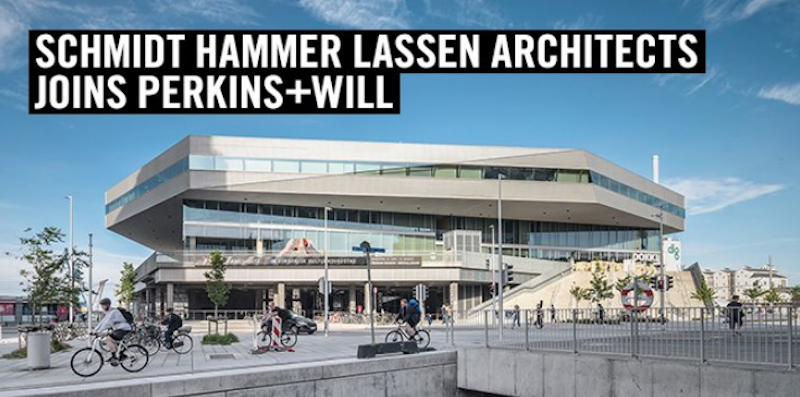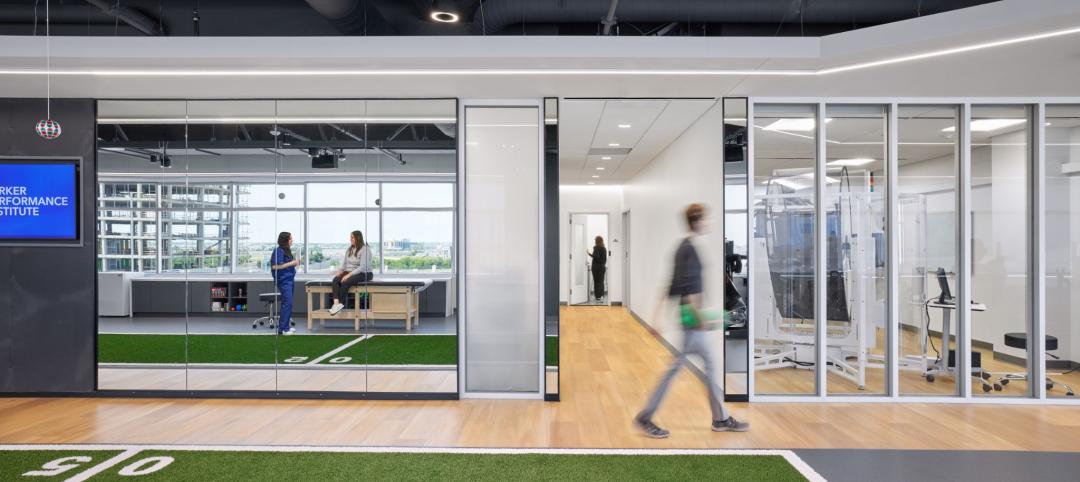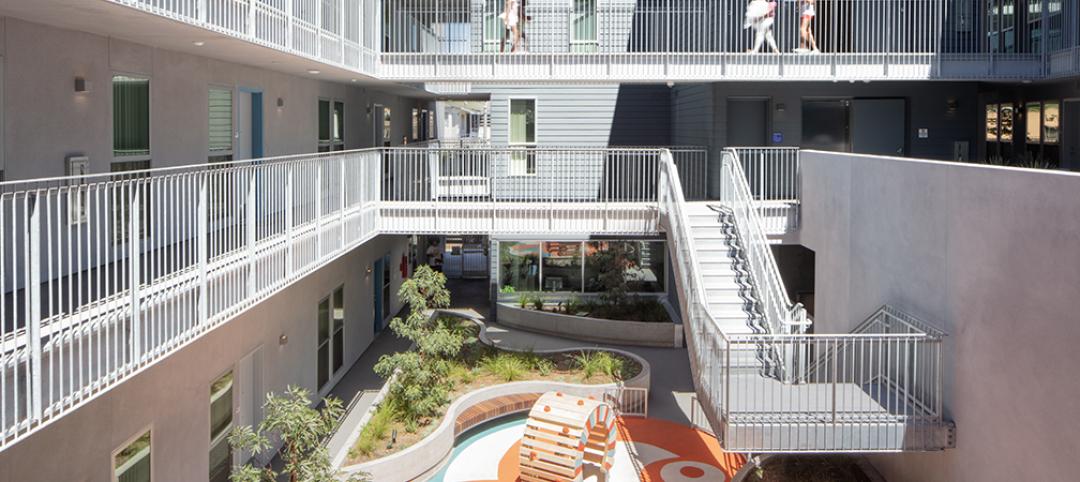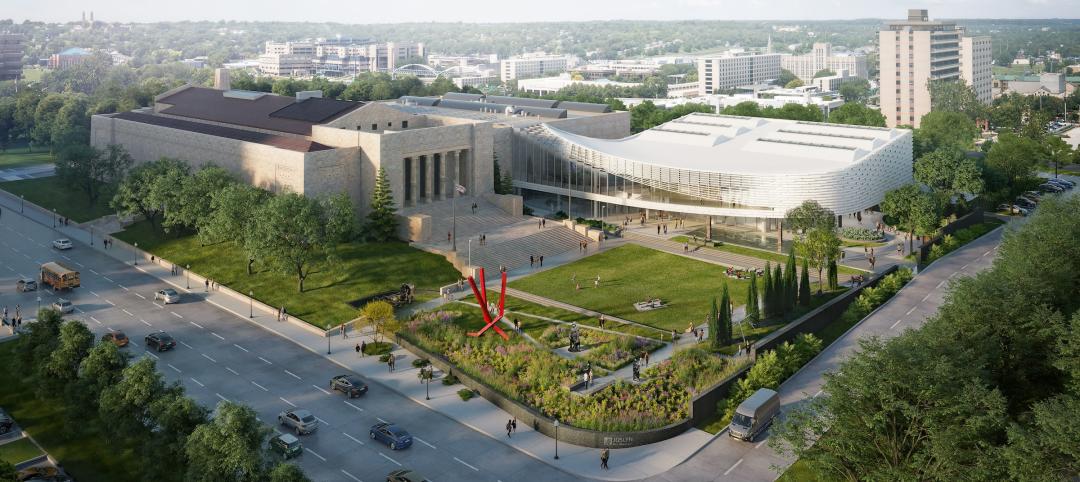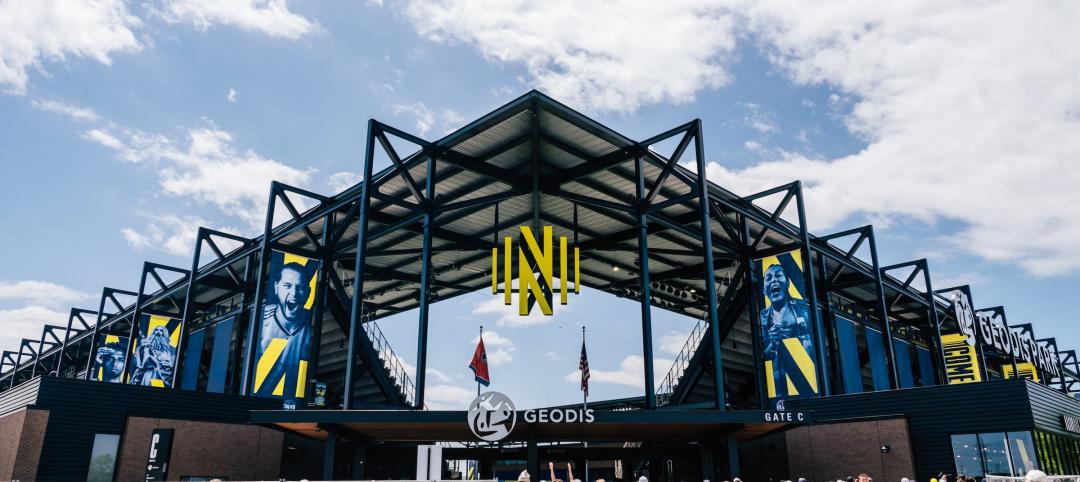One of Scandinavia’s most recognized design firms, Schmidt Hammer Lassen Architects, has joined global architecture firm Perkins+Will in a strategic partnership that extends Schmidt Hammer Lassen’s international reach and reinforces Perkins+Will’s commitment to sustainability and design excellence.
Founded in 1986, Schmidt Hammer Lassen is known around the world for its iconic, highly sustainable cultural and civic architecture, including The Black Diamond, the extension to the Royal Library in Copenhagen; ARoS Museum of Art in Aarhus, Denmark’s second-largest city; Halifax Central Library in Nova Scotia, Canada; the Katuaq Cultural Centre in Nuuk, Greenland; and the International Criminal Court in The Hague. The firm recently won a global competition to design the world’s largest library—the 1.2 million-square-foot Shanghai East Library—and it is currently working on the transformative Monroe Blocks mixed-use development in Detroit, Michigan, the firm’s first project in the United States.
By combining Perkins+Will’s 83-year legacy of design excellence with Schmidt Hammer Lassen’s illustrious Danish design pedigree, the united firms will make even greater contributions to the canon of cultural and civic architecture, according to Perkins+Will CEO Phil Harrison.
“Part of what makes this partnership so special is that Perkins+Will and Schmidt Hammer Lassen share a common set of values: design excellence, sustainability, innovation, and the highest level of client service,” Harrison says. “We also maintain the same design ethos, believing that exceptional architecture is always democratic and in the service of the greater good. We’re compatible at every level.”
Bjarne Hammer, founding partner of Schmidt Hammer Lassen, agrees:
“Our firms share a clear mission: through architecture and design, we make a positive difference in the world and in the lives of others. We both believe strongly in the transformative, healing power of design to address some of the most pressing social and environmental issues of our time. And, we both thrive in a design culture that encourages collaboration.”
Complementary Goals
In addition to a shared vision and purpose, the two firms have symbiotic market strategies. Perkins+Will aims to diversify its global talent, expand its cultural and civic practice, and reinforce the caliber of its design portfolio. At the same time, Schmidt Hammer Lassen aims to expand into new geographic markets, grow its client base, and apply groundbreaking design research to practice.
“We want to be known as a company that is both design-driven and client-focused, as a firm that produces extraordinary designs and delivers them with extraordinary efficiency. Merging with Perkins+Will enables us to maintain this critical part of our identity while having the support, technology, and reach of a much larger organization,” says Schmidt Hammer Lassen CEO Bente Damgaard. “It’s a fantastic opportunity.”
Perkins+Will’s global platform also provides a host of benefits to Schmidt Hammer Lassen’s international clients, Damgaard says, because they now have all of the resources, talent, and expertise—including research—they need within a single firm. This streamlines collaboration, facilitates communication, and ensures smooth project delivery.
Aligned In Design
The union of Perkins+Will and Schmidt Hammer Lassen is supported in large part by both firms’ legacies of, and commitments to, design excellence.
Over the last eight decades, Perkins+Will’s landmark projects of beautiful, thoughtful design—like the transformative Rush University Medical Center in Chicago, Illinois; the Shanghai Natural History Museum in China; and the Albion Library in Toronto, Canada—have characterized the essence of the firm. Similarly, Schmidt Hammer Lassen’s portfolio of award-winning architecture—projects that constitute works of public art in and of themselves—underscores the firm’s 32-year history of distinguished design. Examples of built work include Dokk1, the largest public library in Scandinavia; Malmö Live, a concert, congress, and hotel complex in Sweden; and Vendsyssel Theatre in Denmark, a music and theater hall that celebrates cultural exchange.
“Our firm is unequivocally rooted in Scandinavian architectural traditions, which are based on values like democracy, welfare, sustainability, light, openness, and social responsibility,” says Kristian Lars Ahlmark, senior partner at Schmidt Hammer Lassen. “Our buildings not only reflect these values, but they also impart these values on all who encounter them, whether tenants, visitors, or passersby.”
Synergies in Sustainability
Additionally, both Schmidt Hammer Lassen and Perkins+Will are known leaders in sustainability. Through their high-performing, environmentally responsive designs, the firms contribute significantly to the reduction of greenhouse gas emissions that cause climate change, and to the improvement of human and ecological health. The firms have designed hundreds of projects—collectively amounting to several hundred million square feet—that meet or surpass various international standards for green building. And their staff include many of the industry’s most sought-after experts in sustainable design.
“Sustainability is in our DNA at both Perkins+Will and Schmidt Hammer Lassen,” says Damgaard. “It’s just another example of the synergy between our firms—and of why this partnership makes sense.”
Cultural Diversity
The partnership is also a celebration of differences in culture, customs, language, and heritage—and of the design innovation that occurs when those differences interplay.
“Both of our firms believe in the global diversification of talent and creativity,” says Harrison. “We see the coming together of design cultures, aesthetics, and sensibilities as a positive force that leads to better, more thoughtful, more inclusive architecture. At Perkins+Will, we appreciate and celebrate Schmidt Hammer Lassen’s Danish design legacy, and look forward to the many ways it will positively influence our collective body of work.”
Related Stories
Codes and Standards | Mar 15, 2024
Technical brief addresses the impact of construction-generated moisture on commercial roofing systems
A new technical brief from SPRI, the trade association representing the manufacturers of single-ply roofing systems and related component materials, addresses construction-generated moisture and its impact on commercial roofing systems.
Sports and Recreational Facilities | Mar 14, 2024
First-of-its-kind sports and rehabilitation clinic combines training gym and healing spa
Parker Performance Institute in Frisco, Texas, is billed as a first-of-its-kind sports and rehabilitation clinic where students, specialized clinicians, and chiropractic professionals apply neuroscience to physical rehabilitation.
Market Data | Mar 14, 2024
Download BD+C's March 2024 Market Intelligence Report
U.S. construction spending on buildings-related work rose 1.4% in January, but project teams continue to face headwinds related to inflation, interest rates, and supply chain issues, according to Building Design+Construction's March 2024 Market Intelligence Report (free PDF download).
Apartments | Mar 13, 2024
A landscaped canyon runs through this luxury apartment development in Denver
Set to open in April, One River North is a 16-story, 187-unit luxury apartment building with private, open-air terraces located in Denver’s RiNo arts district. Biophilic design plays a central role throughout the building, allowing residents to connect with nature and providing a distinctive living experience.
Sustainability | Mar 13, 2024
Trends to watch shaping the future of ESG
Gensler’s Climate Action & Sustainability Services Leaders Anthony Brower, Juliette Morgan, and Kirsten Ritchie discuss trends shaping the future of environmental, social, and governance (ESG).
Affordable Housing | Mar 12, 2024
An all-electric affordable housing project in Southern California offers 48 apartments plus community spaces
In Santa Monica, Calif., Brunson Terrace is an all-electric, 100% affordable housing project that’s over eight times more energy efficient than similar buildings, according to architect Brooks + Scarpa. Located across the street from Santa Monica College, the net zero building has been certified LEED Platinum.
Museums | Mar 11, 2024
Nebraska’s Joslyn Art Museum to reopen this summer with new Snøhetta-designed pavilion
In Omaha, Neb., the Joslyn Art Museum, which displays art from ancient times to the present, has announced it will reopen on September 10, following the completion of its new 42,000-sf Rhonda & Howard Hawks Pavilion. Designed in collaboration with Snøhetta and Alley Poyner Macchietto Architecture, the Hawks Pavilion is part of a museum overhaul that will expand the gallery space by more than 40%.
Affordable Housing | Mar 11, 2024
Los Angeles’s streamlined approval policies leading to boom in affordable housing plans
Since December 2022, Los Angeles’s planning department has received plans for more than 13,770 affordable units. The number of units put in the approval pipeline in roughly one year is just below the total number of affordable units approved in Los Angeles in 2020, 2021, and 2022 combined.
BIM and Information Technology | Mar 11, 2024
BIM at LOD400: Why Level of Development 400 matters for design and virtual construction
As construction projects grow more complex, producing a building information model at Level of Development 400 (LOD400) can accelerate schedules, increase savings, and reduce risk, writes Stephen E. Blumenbaum, PE, SE, Walter P Moore's Director of Construction Engineering.
AEC Tech | Mar 9, 2024
9 steps for implementing digital transformation in your AEC business
Regardless of a businesses size and type, digital solutions like workflow automation software, AI-based analytics, and integrations can significantly enhance efficiency, productivity, and competitiveness.


